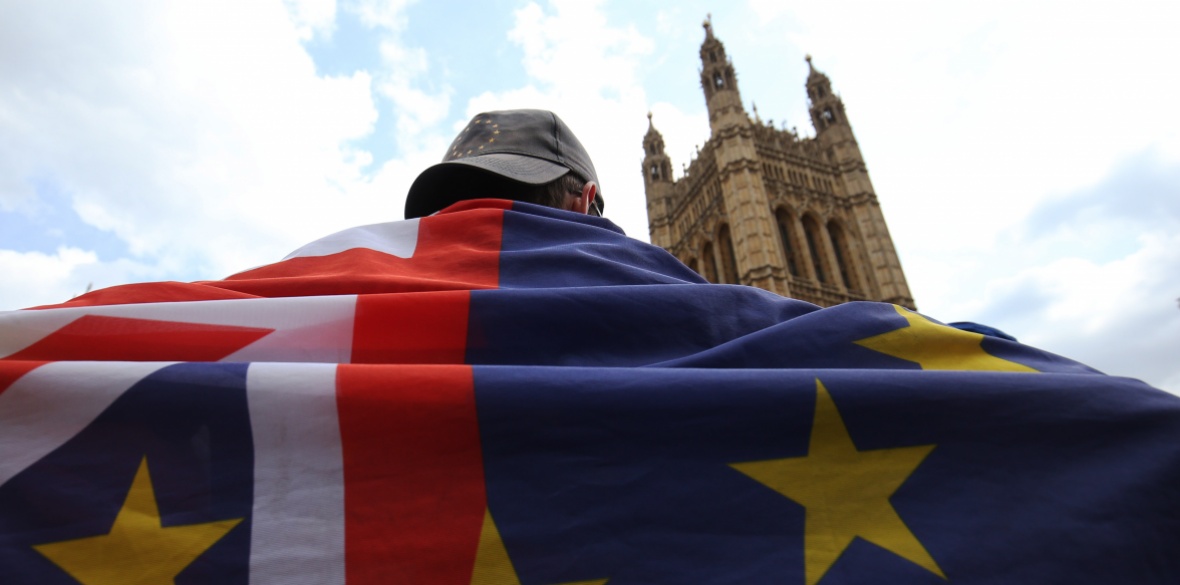This is the last article you can read this month
You can read more article this month
You can read more articles this month
Sorry your limit is up for this month
Reset on:
Please help support the Morning Star by subscribing here
WRITING in 1975, on the eve of the last big referendum on Britain’s relationship with the European Union (European Community as it then was), the great historian of the English working class EP Thompson noted that there were “some sillies” in the labour movement who did not understand the nature of the EC.
As such, they thought that joining would facilitate the advance of socialist and working-class interests. As Thompson astutely pointed out, joining the EC would do the exact opposite, and would put the capitalist class light years ahead of the working class.
Today, the political heirs of these “sillies” have won the day within the Labour Party, and Labour’s position on Brexit has shifted from working for the best form of Brexit, in line with the result of the 2016 referendum, to now effectively being a party of Remain. A party that will campaign for a second referendum, in which it will argue the virtues of remaining in and reforming the EU, to pursue radical, transformative and internationalist politics.
Unfortunately, as in Thompson’s time, this shift in position betrays a lack of understanding of the nature of the actually existing EU, rather than the imagined one that EU flag-wavers extol, and of the balance of forces in Europe today. In the first instance the treaties (not “bits of paper” that liberals would blithely dismiss) are the product of a specific form of economic and social integration that has unfolded over the last 30 years and reflect the class interests of the dominant sections of European capital.
These treaties, and the myriad directives and regulations made under them, are virtually impossible to reform. It seems that even the ardent supporters of “remain and reform” now tacitly acknowledge this, but seek to kick the constitutional question into the long grass, arguing that it will be possible to pursue radical policies at EU level, and then get to the treaties at a later day.
The problem is that policies made within the EU are constrained both by the constitutional framework which has been put in place and the class character and perspective of the main political actors (European Commission, Central Bank and Council). These insure that the policies adopted are in line with the interests embedded in the treaties, with the European Court of Justice there to police any deviation.
The particular form the actually existing EU takes is a product of and response to the structural crisis of capitalism that began in the early 1970s. The commitment to privatisation, wage restraint, rolling back the social state, etc, is not the result of bad neoliberals capturing the EU, but of European capital striving to restore profitability.
In the current conjuncture, as the German economy teeters and the EU has shown slower growth post-2008 than its main competitors, the push within the EU is for further neoliberalisation. We see this for example in the labour reforms in France and austerity in crisis-hit Portugal, Italy, Ireland, Greece and Spain, as well as elsewhere. The recent “election” of Ursula von der Leyen as Commission president provides a striking reminder of the drive also to limit democracy.
This trajectory, in turn, has fuelled the rise of the right across Europe (from Finland to Italy, France, Germany, Hungary and so on), and seen European capital push, via the EU, for greater competition, opening up of public services and further downward pressure on workers’ wages and conditions. Symptoms of this can be seen, for instance, in the EU pushing so hard for the TTIP trade deal with the US and the introduction of the Fourth Railway Package.
That the Labour Party could spearhead reform of the EU, already constitutionally nigh impossible before 2008, forging alliances with high-profile but irrelevant and inept figures such as Yanis Varoufakis, beggars belief.
Far more likely, capitulation by Labour will signal the end of Corbynism as any form of transformative politics, the British right will be strengthened, the EU will become increasingly neoliberal and authoritarian, and the left here will have squandered a golden opportunity.











